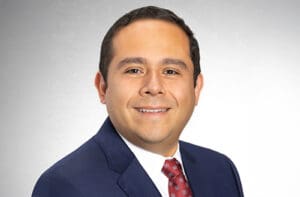Alumni Network Newsletter
A Welcome Message from Co-Managing Partners Hailyn Chen and Malcolm Heinicke

We are delighted to reconnect with each of you through this fall edition of our alumni newsletter. Munger, Tolles & Olson is thriving, and we are proud to celebrate the achievements of our remarkable and talented alumni and current lawyers.
In this issue, we spotlight three distinguished MTO alumni: the Honorable Carl H. Moor, associate justice to the California Court of Appeal, Second District; Amy Tovar, senior vice president and general counsel for the San Francisco Giants; and Caroline Cunningham, vice president, associate general counsel (product and commercial) at Lyft.
The firm’s Alumni Lunch Series continues to provide a wonderful way for our alums to connect with the firm and share their post-MTO adventures and accomplishments. Just recently, we were fortunate to welcome six MTO alumni whose post-firm careers have spanned a wide range of roles, from in-house counsel and federal public defender to CEO and more. We will be announcing our 2025 speakers soon, and we hope you will join us virtually to hear from them.
In this edition, we also highlight the careers of two retired MTO partners: Bob Johnson and Martin Bern. They each called the firm home for more than 30 years and built impressive and varied careers. We are grateful for their contributions to MTO and its clients.
And finally, we share some of the firm’s recent case victories, transactions and award wins.
In short, we recognize and celebrate the role that you all played and continue to play in this success and our overall enterprise. Thank you for staying engaged with our alumni community. If there is anything that we can do for any of you, please let us know.
All the best,
Hailyn Chen and Malcolm Heinicke
Co-Managing Partners
Alumni Spotlight
Over the course of their careers, our MTO alumni have collected incredible insights and stories to share. In this series, read interviews from those who have called MTO home throughout the years and contributed to the firm’s rich history.
Interview of Carl H. Moor, Associate Justice to the California Court of Appeal, Second Appellate District
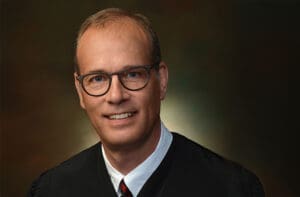
California Court of Appeal, Second District Associate Justice Carl H. Moor first worked at Munger, Tolles & Olson as a summer associate while attending Yale Law School. He served as a law clerk to the Hon. Mariana R. Pfaelzer in the U.S. District Court for the Central District of California before practicing for five years at Hall & Phillips. He was an assistant U.S. attorney in the Central District for a total of six years over two periods, broken up by a stint as in-house litigation counsel at NBC Inc. Justice Moor joined MTO in 2001 and was appointed to the Los Angeles Superior Court by Gov. Jerry Brown in 2013 and to the Court of Appeal in 2018.
Retired MTO Partner Jeffrey I. Weinberger recently spoke with Justice Moor about his legal career.
Justice Moor, you have had one of the most varied legal careers I’ve ever seen. Was that kind of serendipity, or was it planned?
It certainly wasn’t planned. I don’t think when I entered the legal profession I had really any idea where it would lead. For example, I remember my second year of law school, when I was interviewing with MTO for a summer position, I was very adamant that I was going to be a transactional lawyer. It took me about five minutes after I got there to think, “OK, that’s not me at all.” And then I ended up moving toward litigation.
When I was clerking for Judge Pfaelzer, I got to spend time in the courtroom, and I just became fascinated with the criminal trials. The reason I ended up at [the public interest law firm] Hall & Phillips was that Claire Silvia, who had been an MTO summer associate along with me in the summer of 1986 and had clerked for Judge Pfaelzer the year before I did, was there and encouraged me to apply. I was all set to come to MTO after leaving my clerkship, or perhaps seeking to join the U.S. attorney’s office, when I went to interview at Hall & Phillips. I probably wasn’t adequately prepared for my interview, because I was not particularly interested, but during my visit, I became very interested in their False Claims Act practice. From that point forward, I became a little more directed.
We did these False Claims Act cases, and that meant we were co-counsel with the civil side of the U.S. attorney’s office. It really solidified my interest in joining a prosecutor’s office. I became very intent on applying to the U.S. attorney’s office.
My time working in-house at NBC was a little bit of a one-off. I ended up going back to the U.S. attorney’s office. Then I felt ready to throw my hat back into the law firm world. I had this long-standing connection to MTO. I just felt I had a depth of relationships at MTO and a fondness for the people, even though it was 1986 when I left and now it was 2001. I still felt very, very connected to the place.
During your 12 years at MTO, what were your primary areas of focus? What were your most satisfying experiences and matters?
I worked generally in the areas of internal investigations and white collar criminal defense. I ended up doing a lot of SEC work, which was government regulatory, and also some complex civil litigation. The investigative work was incredibly satisfying. I really loved that work and felt that I had a good background for it.
An intense litigation matter I worked on at Hall & Phillips had to do with the allocation of costs under government cost accounting standards for computer time and billing algorithms. It was one of the most complex puzzles and one of the most satisfying cases to dig into as a young lawyer because it was so factually intense, and I really learned something about government cost accounting standards. So, when I came to MTO and started doing work for Northrop and Boeing, that background in government cost accounting standards — which actually is a hard one to find — made me well suited to that work, and I really enjoyed it. I felt like I could really help clients by getting to the bottom of a problem, doing it quickly and finding an effective solution.
I also did a number of insider trading cases with personal representation of a client. In those cases, there was always the threat of criminal prosecution in the background. Fortunately, that never happened to any of my clients, and we resolved a number of those cases very successfully. I liked the quasi-criminal feel of those cases, but with the pressure dialed down a notch because it was very likely no one was going to jail.
Was joining the judiciary something that you had your eyes on?
It was always in the back of my mind. I remember the first time I ever went and saw a real court argument. It was the summer of 1986 in front of Judge Pfaelzer, and it was a case that MTO was bringing on behalf of the Philippine government to get an injunction against Imelda Marcos. A number of the MTO summer class helped — it was a very quick turnaround. I watched Judge Pfaelzer at the hearing, and I thought to myself, “I would love to be a judge one day.”
The summer I spent at MTO was between my second and third years of law school. After I accepted the job at MTO but before I started, I got a fellowship in Japan for a year. I took a year off from law school and then came back and finished. I really wanted to clerk for a judge, so I sent a bunch of applications to federal district court judges here in L.A. based upon my summer experience at MTO. Judge Pfaelzer fortunately hired me. That experience working for her during that year made me very interested in potentially joining the bench one day.
It was out of my mind for many years until California Supreme Court Justice Josh Groban, then Gov. Brown’s judicial appointments secretary, whom I got to know through the Boeing case when we were both at MTO, pulled me aside and said, “Have you ever thought about becoming a judge?” I said I had thought about it, but the timing wasn’t quite right. It was probably another year after that conversation before I called him up and said, “OK, let’s talk about this.”
What was the beginning of your judicial career like in the Los Angeles Superior Court?
I had a wonderful going-away party at MTO, where Ron Olson spoke about the importance of the judiciary. And then a week later, I was in traffic court doing cases about four-way stops!
I started at the Metropolitan Courthouse and spent five months handling traffic violations. It ended up being a great place to start being a judge and to get comfortable managing a big docket in a courtroom. Then I did seven months in a criminal misdemeanor court before spending nearly four years in the Family Law division, which was fascinating.
Did your experience at MTO help you when you were on the Superior Court bench?
When I was at MTO, I had a lot of opportunities to see the way judges try to manage lawyers and also how lawyers manage judges. One of the things I liked about a family law courtroom is that you’re the fact finder and you’re doing everything to manage a case and find ways to bring the parties to a point where they can figure out what they really were and were not disputing. I liked that. I learned from a lot of places, but more than anywhere else, it would be from spending time at MTO and watching the very best litigators plan out how to manage a case.
How would you compare your professional life on the Appellate Court with your experiences on the Superior Court?
The Superior Court is like drinking from a fire hose! Day after day, you’re just confronted with so much work, and everything is moving so fast. You don’t have any time to pause. You’ve got so much going on in the courtroom. You are all in and all focused, and the rest of the world just disappears because you have to be so present every moment.
The Court of Appeal is nothing like that. They’re completely different jobs. We have a huge caseload. We don’t have a lot of time to twiddle our thumbs, but we have the luxury of time as compared to the trial court. You also have the input of very good research attorneys. And you’ve got your colleagues who are going to test your draft opinion. It’s a much more deliberative and intellectual job.
What I really like about it is we do everything. Every month, you’ve got a few cases that are just like something you’ve never seen before, so you’re always learning.
Interview of Amy Tovar, SVP and General Counsel at San Francisco Giants
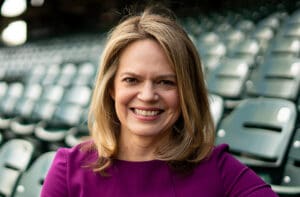
Miriam Kim and Grace Ordóñez recently spoke with MTO alumna Amy Tovar, general counsel at the San Francisco Giants. Amy was an associate in the firm’s San Francisco office from 2004 to 2009.
Amy, thanks so much for joining the alumni newsletter team for this conversation. To start off, tell us how you started at MTO.
I was a summer associate in 2002 in the Los Angeles office. After graduating from law school and clerking in Chicago, I started in the San Francisco office in fall 2004.
How long were you at the firm?
I left in January 2009. My son was born that month, and I was planning to be out on parental leave. However, my husband, Ben Horwich (now a Partner at MTO), got a job at the Department of Justice, so we moved to D.C.
Where did you work while in D.C.?
When I moved to D.C., the baby had just been born so I was home for about a year. MTO didn’t have an office in D.C. at the time. Rather than look for a new firm, I decided to try out government work and joined the Obama administration. I got an appointment as associate general counsel at the Department of Transportation. I worked on a variety of things, including regulatory issues, crisis response and congressional oversight.
After your time in D.C., how did you end up at the Giants?
In 2014, we moved back to the Bay Area, which is home for me. Ben joined MTO, and I was looking for in-house opportunities, but I had an unusual background, having worked in government as opposed to a transactional practice. I saw a job posting for a legal role at the San Francisco Giants and thought that it would be very interesting. Even though I did not have a background in sports, I applied anyway and made it through the application process. I have been with the Giants for nine years now.
What is your current role and your responsibilities? And what was it like to transition to the world of sports?
I’ve really enjoyed working in sports, and I love my client. I work with people who are passionate about what we do. I am constantly working on new issues and wear a lot of different hats. It keeps things fresh and fun. On a single day, I could go from working on a multimillion-dollar deal to reviewing a contract with a hotel that the team is staying at next year. I’ve gotten exposure to real estate, media rights and intellectual property issues. I have also dealt with government relations — whether through pending legislation that might impact our business or interacting with San Francisco, our landlord. I have also worked on updating our ticketing model to ensure its compliance with new California laws.
Were you a fan of the Giants as a Bay Area native?
I grew up in a family of die-hard Giants fans. At the time, I was probably the least passionate, but I am now very passionate. I remember my dad and grandma loving the Giants, and I enjoy thinking about how excited they would be today knowing that I have a role with the team.
What is it like working for an iconic institution in the Bay Area?
It is amazing being associated with such an important part of the Bay Area. As a team, we understand that we are carrying forward something that’s not just a business — it’s a valuable community asset. We take pride in and responsibility for taking proper care of it.
Has your experience at MTO helped you in your practice at the Giants?
Absolutely. I am constantly drawing on past experiences at MTO. I received excellent training in seeing issues from different sides and analyzing risk. That type of training set me up for what I deal with now, even though I’m not typically writing briefs or appearing in court. My MTO background is especially helpful now that I’m looking at our business to make sure we’re compliant with the law.
What do you miss and not miss about MTO?
I miss the people (although, I do still see so many of you!). I also miss the feeling of knowing you have delved deeply into an issue. In my job, there are so many legal issues that there isn’t sufficient time to thoroughly research each one.
I do not miss struggling as an associate to feel excited about a client with whom I might not have an immediate connection (although I did have some great clients like Coca-Cola, for which I got to travel around the world on a case). Now, I’m completely invested in one client, which is something I really appreciate about my role.
In your role as a client, do you have any thoughts or advice for MTO or alumni who are still at firms?
Communication is key. The more that outside counsel can be communicative about where things stand and when the client can expect to receive things, the better.
Interview of Caroline Cunningham, VP, Associate General Counsel (Product & Commercial) at Lyft

Miriam Kim and Grace Ordóñez recently spoke with MTO alumna Caroline Cunningham, VP, associate general counsel (product and commercial) at Lyft. Caroline was an associate in the firm’s San Francisco office from 2013 to 2016. Prior to joining MTO, she worked at another law firm for two years.
For those who are not familiar with your path, can you share why you decided to go in-house?
I did some work for Lyft while at MTO and was very impressed with the Lyft legal team. Even though they were young, they were very impressive. The Lyft legal team was making significant decisions and high-level strategy choices even though they were less than 10 years out of law school in some cases. That sparked my interest. Ultimately, I decided that I wanted to work closely with one client. I wanted to be very close to the business decisions and deal with the wide array of legal issues that one client faces, particularly those of Lyft.
What roles have you held at Lyft?
I started at Lyft on the litigation team. At that time, the litigation team was five or six attorneys, and we handled diverse legal issues. I handled a wide array of consumer class actions, personal injury cases and contractual disputes. In 2018, the California Supreme Court issued the Dynamex opinion, which set forth the ABC test for worker classification. This led to an influx of litigation at Lyft, so I transitioned to work with the team of lawyers focused on that litigation. And then about two-and-a-half years ago, I transitioned away from litigation. I now run our product and commercial legal team, which focuses on day-to-day product counseling. We also deal with commercial work that is product adjacent, such as a contract that implicates how users experience our app.
Did your experience at MTO impact how you go about your work at Lyft?
In a lot of ways. There is a wonderful culture at MTO of rigorous debate around legal issues, pushing back on each other and pressure-testing ideas. For example, I remember sitting in Miriam Kim’s office for hours at a time preparing for trial or sitting in Rohit Singla’s office being peppered with questions — not in an antagonistic way but in a really healthy way to make sure that we were thinking about all angles of an issue. So much of what you do in-house is issue spotting and pressure testing with your colleagues. MTO’s culture of healthy debate helped me think two steps ahead and anticipate the next question. I really appreciated the collaborative team environment. We created safe spaces to be tough on each other to make sure that our ideas were as strong as they could be. Being at a firm that goes to trial and getting experience preparing for trial really help any in-house attorney have a sense of what matters at the end of the day, such as what facts make a difference and what a judge or jury might think about something. The very hands-on experiences I got as an MTO associate help me make judgment calls every day.
What is it like to be an MTO client?
It is a privilege to be an MTO client. By being on the other side and working with a lot of different firms, you realize the uniqueness of MTO’s advice and responsiveness. It’s really just incredible. In some ways, I’ve been surprised when you don’t get that from every firm, but the reality is that you don’t. I always know that MTO has thought about a legal issue more deeply than I have. MTO is amazing at responding and being on top of it. It’s pretty impressive. We love being a client of MTO. We always feel like we are in really good hands. With outside counsel, you want to feel like counsel knows more than you many times over, and that’s how we feel with MTO.
Lyft has had many women in leadership, including former president Kristin Sverchek and Chief Legal Officer Lindsay Llewellyn. What is it like to be a woman at a company like Lyft?
It’s really important to have women at the top setting the tone. Kristin Sverchek, who was our first general counsel and one of the first employees at Lyft, really set that tone from day one by making sure we had equal representation between men and women in leadership positions. She created the first parental leave policy — because she took the first parental leave — and as a result, we have an amazing parental leave policy for all parents at Lyft.
Lindsay Llewellyn, our CLO, continues that tradition of leadership, and it makes a difference every day to have a leader of the legal team who makes sure everyone feels included. We’ve also had really great champions and allies in male leaders and with the founders as well. One of the first things our new CEO, David Risher, did when he came to Lyft was launch a product called Women+ Connect for rideshare that lets women and nonbinary riders and drivers ride together more often because he feels so strongly about making the Lyft community inclusive and a comfortable place for all users. We have that kind of leadership at the top and all the way down the chain, and it’s a huge reason I’ve stayed at Lyft so long.
Any other thoughts you want to share?
I would like to express a lot of gratitude for my time at MTO. I was extremely well-trained as a lawyer in a short period of time. I think it’s a privilege to keep getting to work with MTO lawyers, and I feel very lucky to still be an MTO client all these years later.
Alumni Lunch Series
This series features alumni who share their inspiring stories, insights and MTO history with our community. Our goal is to provide valuable knowledge to help fulfill your educational needs, with some talks eligible for California MCLE credit.
We’re excited to share a recap of our most recent alumni speakers.
Mike O’Sullivan | General Counsel, Snap Inc.

Mike had a long tenure at MTO and worked at the firm from 1996 to 2017 in the Los Angeles office before joining Snap as general counsel. At MTO, he enjoyed practicing in a supportive environment with less pronounced hierarchy, which fostered growth and responsibility. He described a pivotal moment during a bank merger where miscommunication nearly derailed the transaction, teaching him to embrace mistakes — an approach he hopes to cultivate in others. Mike also shared how he built trust with then-client Snap during their IPO process, which ultimately led to his current role as general counsel. His advice for new lawyers is to be mindful of the “tyranny of expertise,” which creates silos that limit understanding, and he encourages them to explore diverse fields to better navigate complex, cross-functional issues.
Cathleen Hartge | General Counsel, Runway
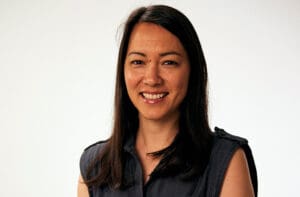
Cathleen joined MTO’s San Francisco office in 2014 and focused on complex litigation matters with international dimensions. In 2018, she joined Branch and now serves as general counsel for Runway. Cathleen shared her experience working in-house and the different dynamics and situations she has had to navigate. She also discussed which attributes are most important to her when seeking outside counsel, including discretion, responsiveness and receiving direct answers.
Cuauhtemoc Ortega | Federal Public Defender for the Central District of California
Cuauhtemoc, federal public defender for the Central District of California, leads the nation’s largest federal public defender office, covering seven counties. Reflecting on his time working at MTO’s Los Angeles office from 2008 to 2009, Cuauhtemoc, emphasized how the firm’s training equipped him to navigate the complexities of federal litigation and uphold the highest standards in his practice. He also discussed how his day-to-day work includes overseeing a team managing a broad spectrum of cases, while also tackling the unique challenges that come with serving such a large and diverse district.
Kathryn Eidmann | President and CEO of Public Counsel
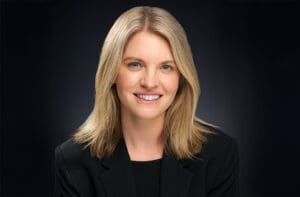
Kathryn worked at MTO from 2011 to 2013 in both the San Francisco and Los Angeles offices before she transitioned to Public Counsel, where she was recently promoted to president and CEO. She highlighted recent collaborations with MTO on various pro bono matters, with projects focused on supporting youth and addressing childhood trauma in education and foster care systems. Kathryn shared insights from notable cases, including a successful effort to secure proper education for a Native American tribe in Stephen C. v. BIE. Reflecting on her time at MTO, she credited the firm’s supportive environment for giving her immediate responsibility and praised its commitment to civic engagement, which remains vital to her work at Public Counsel.
Alan Bersin | Executive Chairman of Altana AI
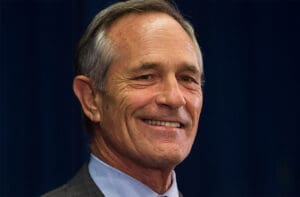
Alan worked in MTO’s Los Angeles office from 1974 to 1992 and shared that the firm played a pivotal role in shaping his career in public service. Recruited from Yale Law School by Ron Olson, Alan was drawn to MTO’s innovative “startup” culture. He described his work on the Bank of America NEMAC case, during which he learned to “think like a lawyer” and developed confidence due to the firm’s trust in its talent. He eventually took on leadership roles at the U.S. Department of Justice and Department of Homeland Security, as well as serving as the secretary of education for California. Reflecting on his journey, Alan emphasized the importance of taking risks while maintaining integrity and building a strong network of supportive friends in order to manage the never-ending challenge of balancing a career and personal life.
Simon (“Sy”) Lorne | Senior Advisor at Millennium Management and Adjunct Professor at Texas Law
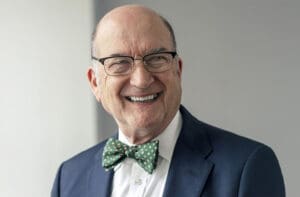
Sy worked at MTO from 1970 to 1993 and again from 1999 to 2004 in the Los Angeles office, following his tenure as general counsel of the Securities and Exchange Commission (SEC). Now a senior advisor at Millennium Management, Sy shared his experience working at the SEC, including his perspective on the recent Fifth Circuit case challenging the SEC’s 2023 Private Fund Rules. He reflected on his early years at MTO, when the firm had only 15 lawyers, and spoke fondly of the collegial atmosphere and warm camaraderie he experienced at the firm. When asked his key to happiness, Sy responded simply: “Freedom.”
Bob Adler, Former Executive Vice President and General Counsel of Edison International
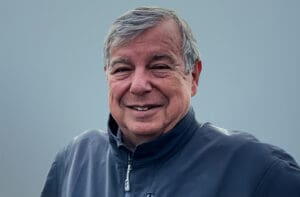
Bob had a 33-year career at Munger, Tolles & Olson, working from the Los Angeles office from 1975 to 2008, before joining Edison International as general counsel. Now retired, Bob spoke about the difference between being a general counsel and an outside lawyer and shared examples of navigating high-stakes regulatory challenges in a corporate setting. His insights highlighted the strategic approach required to tackle these issues and underscored the importance of building strong professional relationships.
Upcoming Alumni Lunch Series Presentations
All alumni are welcome to join the lunch talks virtually. Don’t miss out on this opportunity to stay connected and be an active part of our thriving alumni network.
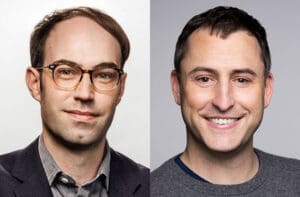
Jesse King, General Counsel at Kleiner Perkins
and
Benjamin Schrier, General Counsel at Greenoaks
Virtual Presentation
Thursday, February 27, 2025
1:00–1:30 p.m. PT | 4:00–4:30 p.m. ET
To register, email hazel.zambrano@mto.com.
Newly Retired Partners
We are proud to celebrate our recently retired partners. Their dedication to MTO and the legal community will continue to influence and inspire us for years to come.
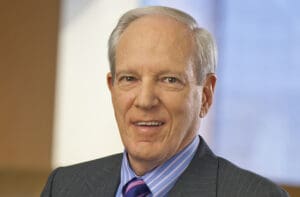
Robert K. Johnson
Retired June 2024
Bob retired from MTO after 56 years of working in the Los Angeles office. He was the first full-time tax lawyer at the firm and served as co-managing partner from 1999 to 2005. Bob worked on a broad range of corporate, partnership, employee benefits, executive compensation and tax matters.
Bob was inducted as a Fellow of both the American College of Tax Counsel and the American College of Employee Benefits Counsel. He was a frequent author and lecturer on tax, executive compensation and employee benefits subjects. He also served as the chair of the Taxation Sections of both the Los Angeles County Bar Association and the State Bar of California.
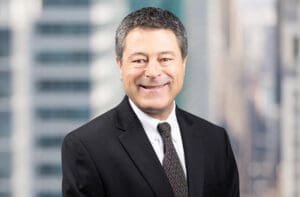
Martin D. Bern
Retired November 2024
Martin had an impressive 31-year tenure at MTO’s San Francisco and Los Angeles offices. His practice focused on complex commercial and class action litigation, including employment, construction defect, contracts and unfair competition.
Martin also provided pro bono representation and advice to national and local environmental organizations on natural resources, legislative and environmental issues.
Firm News
We are delighted to share some of MTO’s recent case wins, transactions and accolades for the important work that we do in the courtroom and community. To read more, view our news highlights.
Recent Client Successes
- MTO successfully secured the reversal of a $1 billion judgment against BMO Bank N.A. (f/k/a BMO Harris Bank N.A.), the U.S. subsidiary of the Bank of Montreal, when the U.S. Court of Appeals for the Eighth Circuit ruled that a federal court erroneously rejected a critical and dispositive defense.
- MTO represented Sean Parker and Prem Akkaraju in a transaction that will result in new leadership and control of Stability AI, an international generative AI company.
- MTO secured a significant victory when the U.S. Court of Appeals for the Ninth Circuit ruled that Google did not violate Robert F. Kennedy Jr.’s First Amendment rights by removing YouTube videos of him containing vaccine misinformation during his campaign for the presidency.
Recent Awards and Accolades
 |
MTO was ranked No. 1 on The American Lawyer’s A-List for the tenth time. Only 20 law firms qualify for a spot on this list, which annually ranks “the most well-rounded members of the Am Law 200.” |
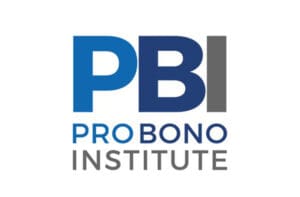 |
MTO was named the recipient of the 2024 John H. Pickering Award by the Pro Bono Institute in recognition of MTO’s outstanding commitment to pro bono legal services. |
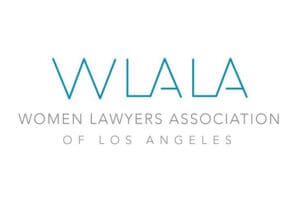 |
MTO was named the 2024 recipient of the Women Lawyers Association of Los Angeles’ (WLALA) Advancement of Women Award. MTO was honored by WLALA at the 2024 Awards Installation and Gala in September 2024 in Los Angeles. |
